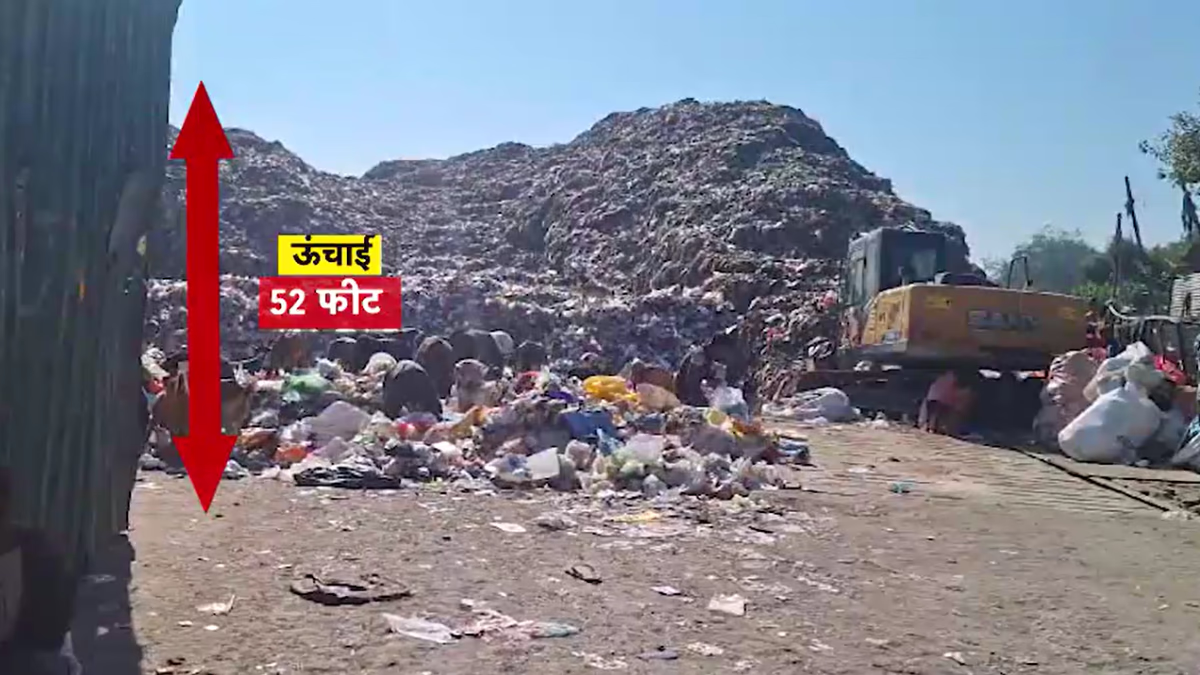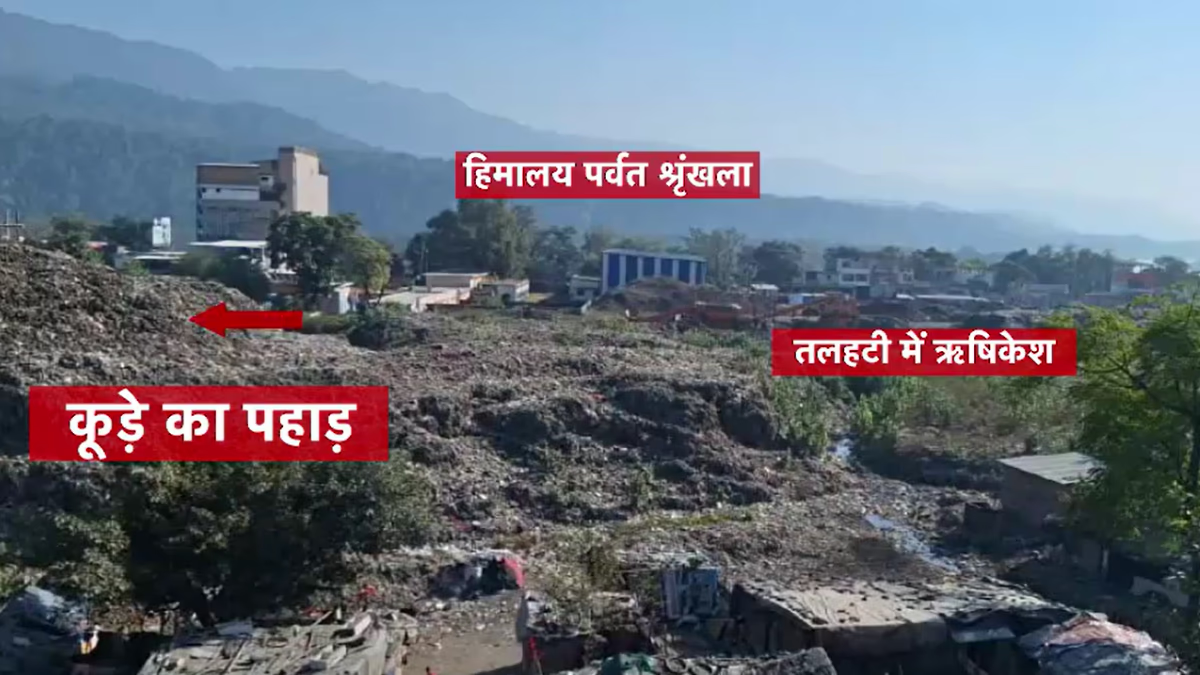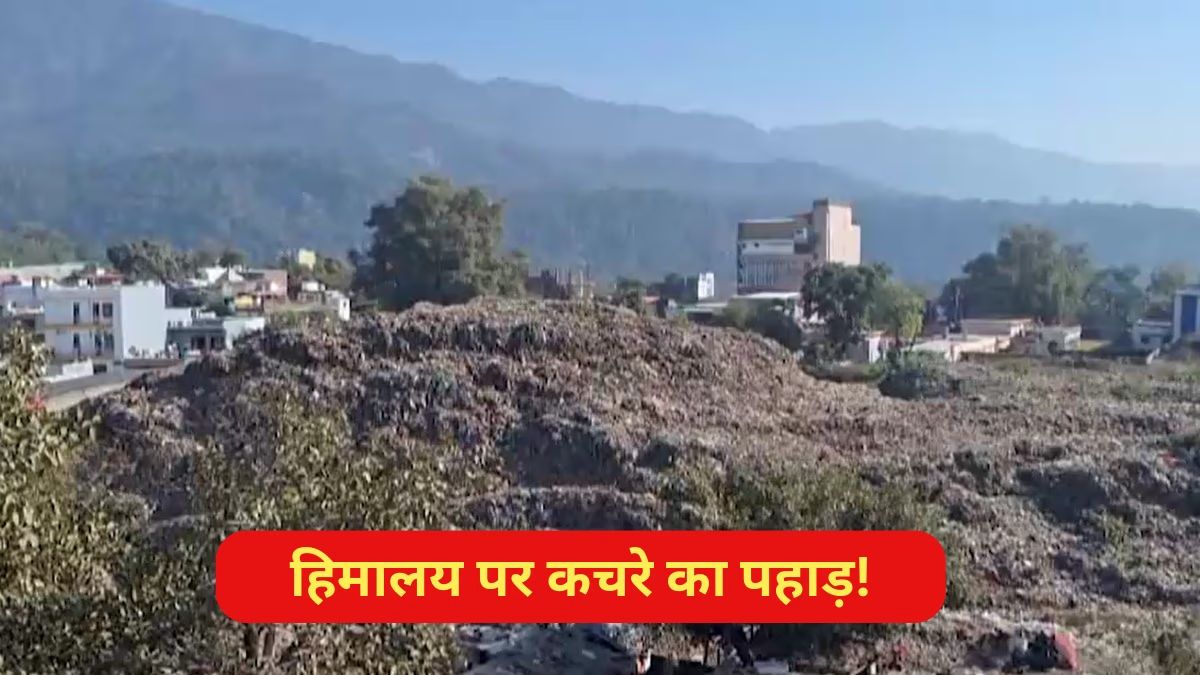In small towns, municipal vehicles collect trash house-to-house to a familiar tune, yet heaps of trash continue to rise, reaching even the Himalayas. Questions arise about who is responsible, as untouched these piles threaten cultural, religious, and social structures with potential disasters.
Mountains are snow-clad, attracting revelers, yet trash accumulates. Behind cell-phone culture lies the issue of waste in the same towns famed for scenic beauty. Citizens wrote letters for a nationwide wake-up call to free Rishikesh from an invading trash mountain near the sacred Ganges.
Trash heap discussions often center on Delhi, but now such a mound looms where the Ganges flows, offering a twisted irony. In Rishikesh, a spiritual and recreational hub, the trash mound becomes an eyesore for those seeking the rejuvenating river experience. Once hailed as a center for peace and meditation, its dilemma must be addressed.

Source: aajtak
For 22 Years, Trash Consumes Rishikesh
The people of Rishikesh question why their homes—mere miles from the Himalayas—must share space with burgeoning trash heaps. For over two decades, the waste problem has grown, mandating attention, as mounds rest dangerously close, merely 70 meters from the Ganges River. Known for rafting, camping, and yoga, Rishikesh faces a towering 52-foot trash pile menace.
Accumulating trash mountains trouble areas from Rishikesh to Kedarnath, sparking concern even among legal circles. Authorities anticipate swift action, promising waste will soon find its receiver at a new solid waste management plant.
Why Are Trash Mountains Emerging Across Cities?
Rishikesh mirrors a national dilemma where city outskirts become de facto dumping grounds. Historically, waste management lapsed, turning trash into formidable hills as populations grew. The stark outcome: waste reaching the pristine Himalayas, mandating an urgent resolution to avert a citizen impact.
To combat urban trash mounds, the central government launched plans surpassing 3,000 crores. However, sluggish state collaboration delays progress. Approximately 15,000 acres are locked in waste dumps nationwide.

Source: aajtak
From Delhi to Bengal, Issues Mirror Each Other
Urban development experts cite daily waste tonnage at nearly half a million tons. While Gujarat and Tamil Nadu address waste efficiently, Delhi lags, its goals repeatedly extended toward 2028. Bengal, stockpiling 143 million tons, manages merely nine million tons within three years.
Why Isn't Trash a Political Issue?
Land, water, and air pollution, alongside diseases, stem from these trash mountains. Yet, they seldom penetrate major political platforms or ignite grassroots movements, allowing trash mounds unchecked growth. Failure to resolve this in Himalayan towns might not only topple mountains but rain down debris.




